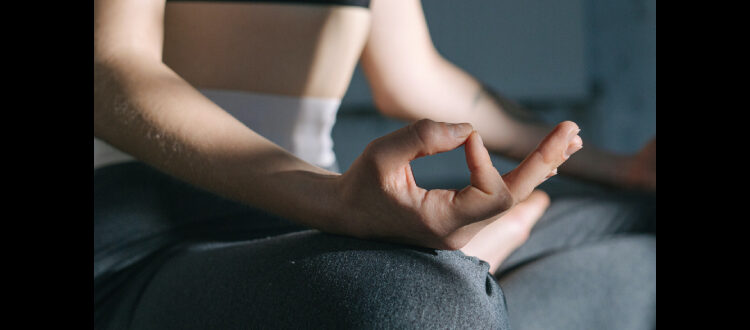Homebody’s Yoga Podcast With Anna
You Deserve to Take up Space with Anna Ritner
Interviewer: Hi Anna, welcome to Homebodies Yoga Podcast. First and foremost, can you tell everybody who you are and what you do?
Anna: Yeah, absolutely. So, my name is Anna Ritner, and I am the founder of Monarch Acupuncture & Wellness, an acupuncture and herbal medicine clinic. We are present in two locations – Walnut Creek and Sacramento, CA.
We focus on women’s health, catering to women trying to get pregnant, balance their hormones, and help them recover from a difficult pregnancy.
Interviewer: Let’s get into how acupuncture works because it has had profound effects on me, but I have no idea why?
Anna: Acupuncture is notoriously hard to explain to people because there is the Eastern medicine way of describing how it works, which has a lot of foreign concepts like qi and yin and yang, and then there’s the Western way of explaining it, which is an evidence-based and holistic medicine practice.
From the Western point of view… what we know about acupuncture so far is that it works by essentially shunting your body into its parasympathetic nervous system. The parasympathetic side is also known as the rest and digest branch of your nervous system vs. the other guy, fight or flight.
I often explain your nervous system like it’s a light switch – it’s either in fight or flight, or it’s in rest and digest, and when in one position, it’s kind of de facto, not in the other state.
When you are chronically stressed, your body is not doing the work that it does when it’s in a rest and digest state. When you’re in that rest and digest state, you’re doing all of your hormone production, all of your anti-inflammatory work, cell repair, and detoxification. That’s where all the magic happens, and the one time it happens is when we’re asleep.
When you’re asleep, you’re actually resting, your brain is offline, and your body is doing many of those physiological processes. Acupuncture kind of puts you in that state. It shuts off the fight-or-flight light switch and puts you in the rest and digest. In other words, it stimulates your body’s healing power.
Once you are in this state, then acupuncture kind of chemically signals your body to take care of whatever it needs to take care of, whether that’s working on relieving pain by decreasing inflammation, synthesizing hormones, circulating blood or lymphatic fluid, or whatever it needs to, you know your body has incredible amounts of wisdom and it knows what it needs to do, and acupuncture helps it get to a space where it can go and do the work.
And then we also know from a biomedical point of view that acupuncture creates these micro inflammations in the skin. So it is like when you get a needle inserted in your skin, it’s kind of like a tiny mini wound, and what happens when you get this tiny wound is that your body signals your brain to send out anti-inflammatory mediators, so chemicals that will rush to the site of the wound and metabolize whatever sort of inflammation is present. So, that’s one specific way that acupuncture is anti-inflammatory, and we also know that when the needles puncture the skin, the body releases a lot of those feel-good hormones like endorphins and oxytocin
So that’s kind of the Western perspective of how it works. And then, from the Chinese medicine viewpoint…Chinese medicine recognizes that all humans are essentially a reflection of the greater ecosystem. So the big ecosystem that exists outdoors also exists within us. One metaphor I often like to use when doing a diagnostic intake is, “I’m sitting on the banks of a river, and I’m watching your life flow by.”
Some questions I ask when I examine my patients are – how is the water moving in that river? How’s the flow of everything, including your emotions? Is the water level too low? Is the water frozen? Are there any dams? Are there many of them from patterns such as internalizing stress instead of externalizing outwards? Those are the things that will show up for Chinese medicine practitioners. That’s what makes it mind-body medicine. My job is to move the dams…unobstructed the dams so that the water starts flowing.
Interviewer: Can you talk a little bit about some different archetypes you see in your clinic of healing people on their path to healing?
Anna: Yes, absolutely. Something that I observe commonly is that the biggest impediment to a woman’s healing process is the idea that she internalizes from the world about who she needs to be.
Women have this idea that we should be able to do it all. We should be able to have a perfect organic childbirth; we should be able to breastfeed and be able to nurture our child, but we should also be a sexy wives and have a really high libido. We should also have an awesome career waiting for us on the other side of that baby.
When we’re unable to do everything perfectly, we see all of these manifestations of disuse as a personal shortcoming. This gives rise to all sorts of problems, from postpartum depression to insomnia.
Another common archetype is people pleasing. Somewhere along the line, we learn that it’s not polite or ladylike to have boundaries. Many women come to me saying I know my hormones are out of whack, and I’m having horrible periods and PMS.
When I investigate, I find that they are either overworked, or they don’t have good boundaries with their parents or partner. So, they’re taking on a disproportionate amount of the domestic workload, and as a result, they don’t have time for themselves. An important aspect of my job is to help my patients learn to put boundaries and stand up for themselves so they can protect their own time and energy.
To listen to the entire episode, visit the Homebodies Yoga Podcast, or learn more about the holistic wellness of acupuncture with Monarch Acupuncture & Wellness, contact us today.


